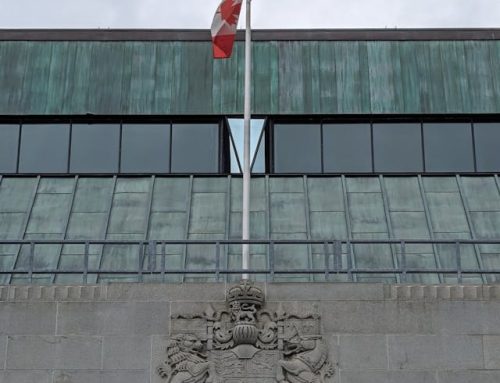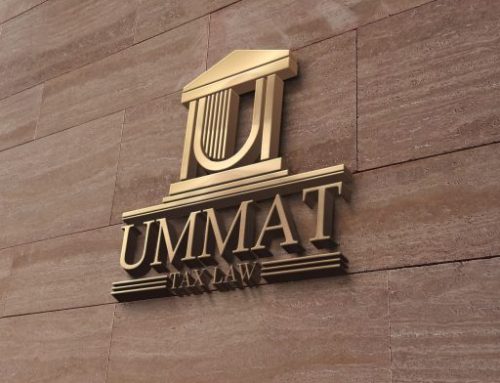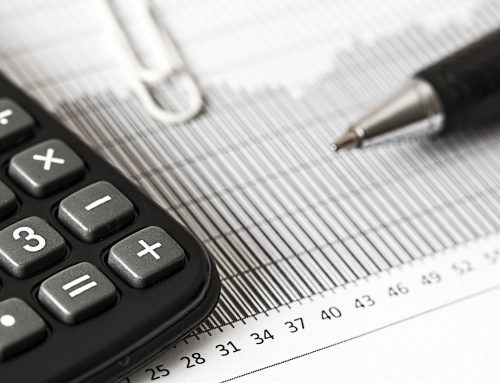Trip to the International Space Station Found to be Personal
Cirque du Soleil Founder Barred From Deducting Trip to Space
Laliberté v. Canada 2020 FCA 97
Decision Here
Summary
This is about as interesting as tax cases get. A prominent Canadian characterized the costs of a predominantly personal trip to space as a business expense. Both the Tax Court of Canada (“TCC”) and the Federal Court of Appeal (“FCA”) disagreed and a rather substantial shareholder benefit was found to have been correctly assessed.
Facts
The Appellant is the founder of Cirque du Soleil. He took a trip to the International Space Station (ISS) in 2009. The trip was paid for by one of the corporations in the Cirque du Soleil group. The Minister of National Revenue (“Minister”) assessed the Appellant with a shareholder benefit equal to the cost of the space trip. The Appellant appealed the assessment, arguing that the trip was a stunt-type promotional activity for the Cirque du Soleil group and for a charity he founded and thus did not give rise to a shareholder benefit. The TCC allowed the appeal in part on the basis that the Appellant had received a shareholder benefit equal to 90% of the cost of his space trip.
Background
A bit of context is important here. As early as 2005-2006, the Appellant entered preliminary negotiations to take a trip around the moon, but for various reasons ultimately declined the opportunity. In 2009, he revived the idea of a space trip, this time to the ISS. In April 2009, the Appellant signed an Orbital Space Flight Purchase Agreement with Space Adventures, Ltd. for a trip to the ISS. The Appellant spent twelve days in space and on the ISS in September and October 2009.
The Appellant alleged that the orchestration of a brief worldwide broadcast event on the ISS called the “Poetic Social Mission – Moving Stars and Earth for Water”, the Appellant’s use of many pictures used for a book benefitting a charity, and a filmed a documentary about his space journey, were all indications that the trip was to promote his charity and the Cirque du Soleil. The cost of the trip was $41,816,954, paid for by a related corporation.
A surprising fact was that the Appellant included $4 million as a shareholder benefit in his 2009 tax return. Despite including this amount in his tax return, the Appellant argued that he did not receive a shareholder benefit, but rather, the $4 million number was chosen as the estimated value of avoiding both a tax dispute and the bad publicity that might have occurred if nothing had been reported as a taxable benefit.
Tax Court Decision
The TCC found that the Appellant had directly or indirectly received a shareholder benefit from the space trip. The TCC determined the value of the benefit to be 90% of the cost of the trip, or approximately $37.6 million, and referred the matter back to the Minister for reassessment on that basis. The reasons supporting the personal nature of the trip are extensive, and include:
- Cirque du Soleil had not done any other major stunt-type marketing events in the past;
- Tax planning measures were instituted to ensure an arm’s length party was not affected by the cost of the trip;
- Despite arguing that the trip was intended in part to promote the 2009 launch of Cirque du Soleil in Russia, none of the costs of the trip were charged to the budget for the Russia show; and
- The TCC examined the purpose of the space trip and concluded that the motivating, essential and overwhelmingly primary purpose of the travel was personal.
The TCC cited 27 separate reasons in support of its finding that the trip was personal, including:
- The Appellant always intended that he himself would go;
- The Appellant’s lifelong dream to go to space; and
- The Appellant referring to himself as a space tourist in a documentary.
10% Allowed by Tax Court
The TCC allowed 10% of the cost of the trip as business-related. It considered this to be reasonable as it was close to the direct incremental costs borne by Cirque du Soleil and One Drop in carrying out the Poetic Social Mission and related activities. The TCC valued the shareholder benefit conferred on the Appellant at approximately $37.6 million and the business portion at approximately $4.2 million.
The Appellant appealed the TCC decision on the basis that the TCC erred by misconstruing the test for the conferral of a benefit under subsections 15(1) and 246(1) of the ITA and by imposing an incorrect burden of proof on the Appellant to establish the quantum of benefit conferred.
Decision & Analysis
As for the first alleged error, the Appellant argued that the TCC misconstrued the test for the conferral of a benefit in three ways: first, by substituting the unrelated test for deductible business expenses under paragraph 18(1)(a) of the ITA; second, by incorporating a criterion of “results of impoverishment” to the corporation instead of the criterion of “intent of impoverishment”, which the Appellant says is to be determined with reference to his intent, as the controlling shareholder of the Family Holdco, at the time the corporate expenditure was engaged; and, third, by concluding that the original personal motivations of the Appellant irreversibly led to the conclusion that there had been corporate impoverishment, which the Appellant says is not determinative of the inquiry under subsections 15(1) and 246(1) of the ITA.[1]
The FCA dismissed these arguments on the basis that:
- The Tax Court applied the correct test by focussing on whether the Appellant’s trip was business or personal;
- The TCC was correct to find that subjective intent is not determinative when attempting to discern whether a shareholder has benefited; and
- The TCC did not rely solely on the Appellant’s personal motivations, but rather on the entire factual matrix to ascertain whether the trip was for a business or personal purpose.
Other Alleged Errors
The second alleged error was that the TCC incorrectly placed the burden upon the Appellant to establish the quantum of the benefit conferred. The Appellant submitted that once a taxpayer rebuts the assumptions upon which the Minister’s assessment was made, it falls on the Crown to establish facts sufficient to uphold the assessment. The Appellant argued he succeeded in demolishing the Minister’s assumptions, which then meant that the burden shifted to the Crown to prove the quantum of the benefit conferred. As the Crown called no evidence on the issue, the Appellant argued that he should have succeeded.
The FCA dismissed this argument on the basis that the Appellant did not actually succeed in demolishing the assumptions. The FCA opined that to demolish the relevant assumptions, the Appellant would have been required to show that the space trip was a bona fide business venture in its entirety. This he did not do. The TCC actually found that the converse was more likely, namely, that the motivating, essential and overwhelmingly primary purpose of the travel was personal. The Appellant’s appeal was therefore dismissed with costs payable to the Crown.
Takeaway
At paragraph 33, the Court references a few important cases and recognizes that the framework for analyzing whether a benefit has been conferred under subsection 15(1) of the ITA involves three steps: determining whether a benefit has been conferred on the shareholder qua shareholder; determining what precisely the benefit is; and determining the value of that benefit to the shareholder by asking what the shareholder would have had to pay for it had he or she not been a shareholder.
The lawyers at Ummat Tax Law are experts in tax disputes involving shareholder benefits. Call Today.
[1] Laliberté v. Canada 2020 FCA 97, at para. 28.




